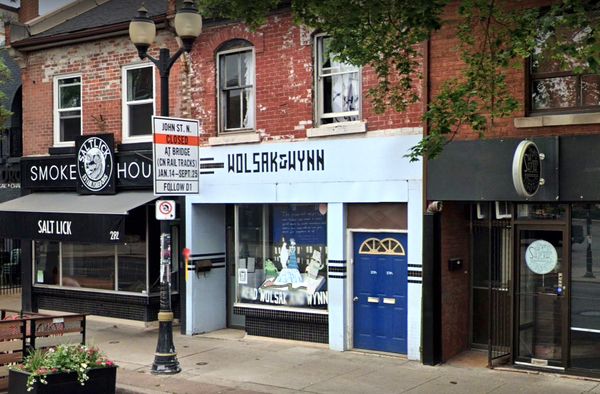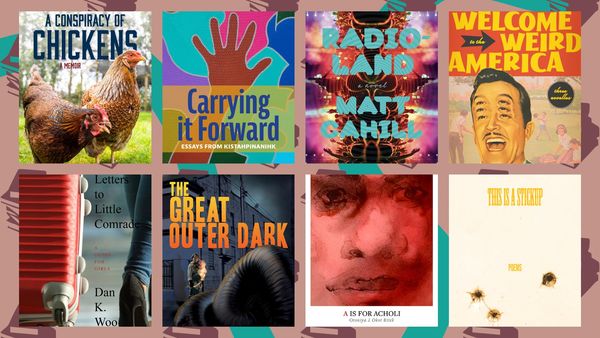The Joy of Building a List
By Noelle Allen
Early on, when I still thought I’d be a writer rather than work in publishing, I remember coming across a lovely quote from Toni Morrison saying something along the lines of “If you can’t find the book you want to read, you must write it.” I know that’s not the exact quote, but that’s how I remember it. After a while I realized I wasn’t really all that interested in sitting down to write books (and acquiring the usual rejection letters), and at about the same time I also discovered there’s another way to find those books that don’t seem to be on the bookstore shelves. You can publish them.
Writing a book is a lot of work. There’s years of thinking, writing, revising, etc., and then you need to find a publisher. Publishing a book is a lot of work too, but it’s a different kind of work. It’s more collaborative and often it’s joyous. You’ve made something that was an invisible labour real, tangible. People can pick it up and flip the pages, physically or electronically. Generally the author is happy and the readers are happy (except the ones that write to point out the typo on page 236) and sometimes the book your author has written turns out to be what another person desperately needed to read at that very time.
When I started at Wolsak and Wynn the press only published poetry. I enjoy poetry, and I learned a lot about poetry from Marja Moens, one of the co-founders (along with Heather Cadsby) of the press. But what I love to read is literary nonfiction. Belle lettres, philosophical essays, large sprawling works that sift through ideas and history, fascinating considerations of popular culture, incisive social critiques. Those are some of my favourite types of books to pick up, particularly if the books are also about nature and the environment.
When I bought Wolsak and Wynn from Marja, the first thing we added to the publishing line was literary nonfiction. I still acquire and edit all of the literary nonfiction for the press, and I’ve learned amazing things and worked on beautiful books doing it. Each year I have a new favourite book. And I’m always looking for books that are hard to find on the shelves.
I noticed quite soon after I started acquiring that there was not a lot of women writing literary nonfiction about nature and the environment in Canada. To counter this I encouraged some poets I knew with essay tendencies to bring me those kinds of manuscripts. The books turned out to be beautifully written, of course. I also noticed there weren’t a lot of books written about Hamilton, our home city. We’ve brought out some fabulous books on Hamilton as well now. I also love when women writers take on investigative or hard news–style topics. It’s something I find they’re often pushed away from and that’s unfortunate, as I find women authors bring a very different approach to these kinds of difficult or dark topics. We’ve now published some tough stories written by women.
Your CanLit News
Subscribe to Open Book’s newsletter to get local book events, literary content, writing tips, and more in your inbox
And sometimes I acquire a book because the writing is simply incredible. Or we find a voice that’s completely unique, a story we’ve not heard yet. Writers who write across cultures often have fascinating insights in their books, there can be approaches to ideas that simply upend how you might think about them.
List building is interesting. If you follow a press for a while, you can get a sense of what particular editors at that press find intriguing, enjoy reading or know the market for. As you’re acquiring you find one book leads to another book as authors refer each other to you or find books that speak to them from your press. I’ve often been delighted to find my authors referring to each other’s books in their pages. I have the sense of that these books are building a new part of Canadian literature, opening up areas of discussion where there was little, or none, before. This is why I often suggest that authors look carefully at the books published by a press before they submit their manuscripts. If they can see their book on a table with everything else published by the press, it’s likely the editor for those books can see it as well.
Wolsak and Wynn has an open submission period that runs from January to the end of March every year, and we publish much more than just literary nonfiction. We ask authors to send in a sample of their manuscript with a little bit about themselves and why they think their book is a fit with our list. The full submission guidelines are online at https://www.wolsakandwynn.ca/submissions if you want more details. Yet even with books coming to me from referrals and through submissions I still find myself hunting for books and encouraging new writers to bring me manuscripts. This can mean a bit more work at the editorial stage, but if it makes that book I wanted to read appear, it’s all worth it.
If you’re submitting to us, tell us where you think your book fits on our list. Let us know why your story is unique and why only you can write it. I’m not too worried about the size of the audience we’ll reach, but there should be some readers out there who will just love what you’re writing. Or who need to read your story. Of course, if you’re sending us literary nonfiction, the first of those readers, if we accept your book, will be me.
The views expressed by Open Book columnists are those held by the authors and do not necessarily reflect the views of Open Book.
Noelle Allen is the publisher of Wolsak and Wynn, a small press located on James Street North in Hamilton. The press was created in 1982 by two dedicated poets, Heather Cadsby and Marja Jacobs, who felt that important poetry was being neglected by the publishers of the day. Within six years the press had gone from its first anthology of poems to its first Governor General’s Literary Award for Poetry. It is the place to find important work that has been overlooked by larger publishers, whether it’s cultural analysis, memoir or translation.





